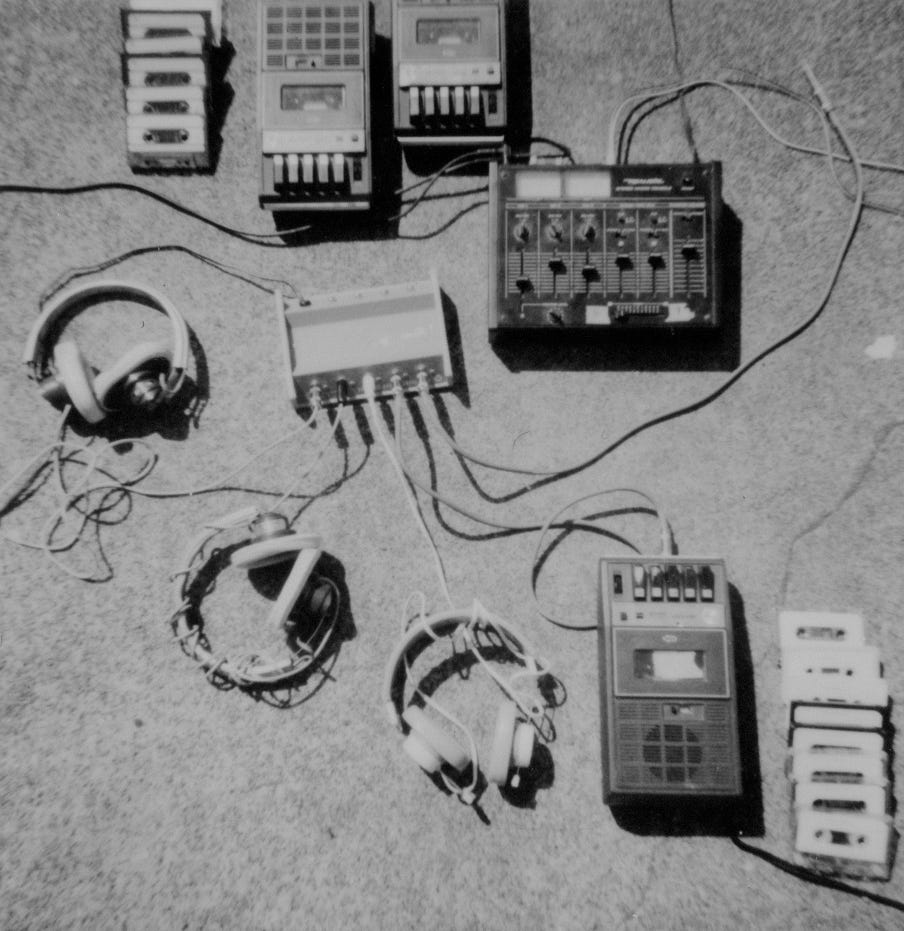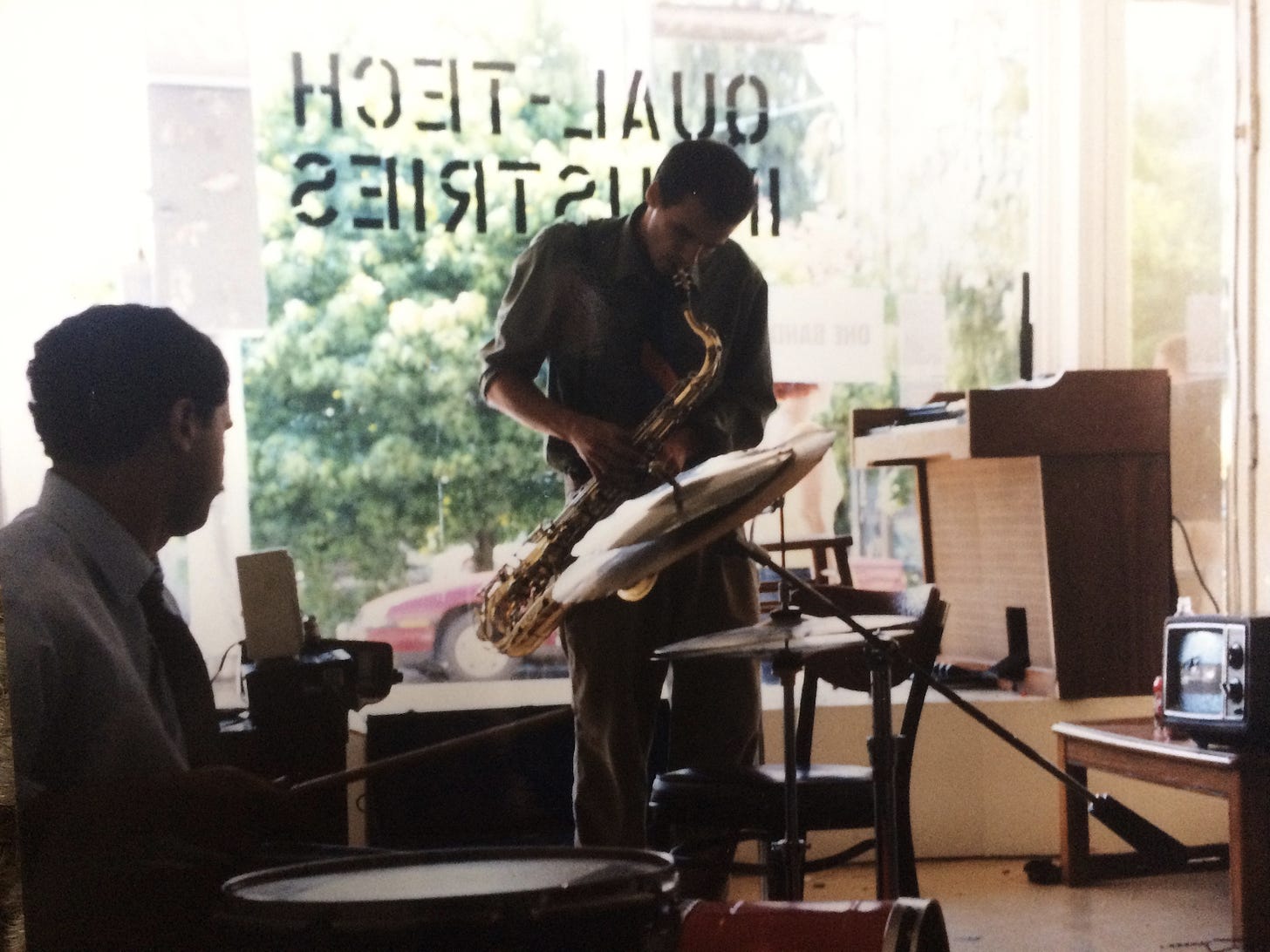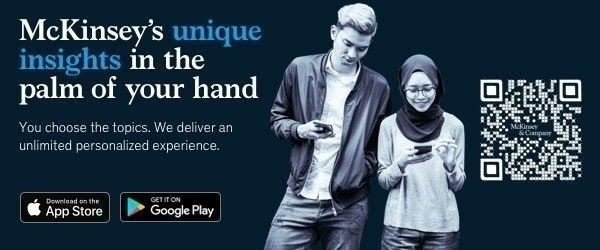The Punk Edition
On experimental art, empathy, and the experience of raising a special needs child
Quick note: Michael finally got around to joining the WITI contributors Slack, and we were all reminded how much we liked this piece from August 2020. I won’t spoil it with a quick summary, but it is worth your time this morning. -Colin (CJN)
Michael Kaufmann (MK) has a rich history of cultural entrepreneurship, working collaboratively to make space for others to create and experience surprising beauty. He worked for over a decade as label manager for Asthmatic Kitty Records (Sufjan Stevens, Helado Negro, Julianna Barwick) before starting Meru where he manages Son Lux, Holland Andrews, and 81355. You can view his band Therefore’s art and music experiments here and read his musings at punksyndrome.com.
Michael here. My story today is about punk, and how it prepared me for Down syndrome. To tell this story I need to start with the story of my noise band, Therefore. In 1997, on Father’s Day of my junior year in college, I started a band with my friend Wayne. At the beginning, we probably spent more time theorizing about music than actually playing it. The name Therefore denoted that we wanted to create music that existed between two moments, or between two ideas, music that created awareness more to the things around it, than the thing itself. We wanted to create music that existed in the elusive ever-present moment. We believe that all music is imperfect. You can never exactly recreate the same piece of music because the context is always changing. Even when playing a recording in the same room, through the same speakers, at the same volume, a person’s emotional state, or breathing pattern, or the humidity in the air can change the way a piece of music is heard.
We also believed that this imperfection was a good thing. I suppose this was in part because we weren’t actually trained musicians. We played at music. We wanted to make a kind of music that was a meditation on imperfection, and a celebration of the loose boundaries between sound, music, and noise. Others felt we were hitting this mark of imperfection perfectly. When we asked Greil Marcus, author of some of punk rock’s most important writings, including the seminal Lipstick Traces, what he thought of our music he simply stated, “I don’t like it”. Miranda July, experimental filmmaker, musician, and artist walked into one of our performances and immediately turned around and left. Pitchfork gave our third album a 1.2, on their scale of 10. And John Darnielle of the Mountain Goats wrote in his blog Last Plane to Jakarta, that we had the worst band name ever. However, he did go on to write a lovely 8-page review of one of our albums. None of this phased us of course. We believed in what we were doing, and while we may not have been playing to a particular category, style, or genre of music, we played with fierce intentionality. For us, our music was a kind of deep communication, and a place into which we could enter into a shared mindfulness.
We produced over 500 free one-of-a-kind cassettes that we distributed on the street, always in the hope of making music for the masses, non-antagonistic and non-commodified experimentalism. We considered ourselves a punk band. Not punk rock stylistically, but rooted in a punk ethos and ideology that we saw as a method to disrupt the status quo, a tool to create cognitive dissonance, and a disobedience or disruption as a means to question the social, political, and cultural hierarchies of the moment. People often associate punk with youth culture and rebellion. As you are coming of age you begin to see the challenges and hypocrisies of society (in your school, your family, your neighborhood, your country, your world, your self). Punk is the soundtrack to these realizations. I want to make sure that I never lose touch of that adolescent rage and frustration, but instead of it being channeled into a kind of nihilistic destruction, I want to harness it for a healthy questioning of authority and an unrelenting thirst for mercy. I want it to convict and compel me to do the hard work of giving voice to the voiceless.
Our definition of punk wasn’t tied to such bands as the Sex Pistols, the Ramones, or Black Flag that are often associated with this youthful rebellion. Rather, our punk story is one that traces a long history of artists, musicians, writers, social activists, comedians, even a few politicians, who we view as exhibiting this punk ethos. We spent twelve years committed to redefining beauty or at least expanding its definition. We were committed to enriching our listener’s experience of the world around them. We wanted to disrupt assumptions about music and the business of music, to train others to be more thoughtful listeners and consumers. These ideas continue to permeate my life and work. This led me to a desire not to live a life of art, but rather to artfully live.
Why is this interesting?
Let’s be honest, no amount of experimental music or art can ever prepare you for the experience of having a child with special needs—let alone having a child—both the sorrow and beauty, the tears and the joy. Having a child with pronounced special needs can be a traumatic experience, but it is also a profound and magical one. A soft and silent trauma is measured by the missed milestones of typically developing kids, but it is drowned out by the persistent buzz of joy, of being divorced from the trivialities of an otherwise uninterrupted life, of rootedness in the present moment. Even within various special needs communities, there is sometimes this visible attempt of working to be accepted on the world’s terms, but we take a punk approach and insist that the world accept us on our terms.
My son Atlas, by his nature, is a cultural disruption. He is a stranger in a strange land. Atlas challenges our notions of health, success, beauty, and value. And I couldn't be more grateful for the opportunity to have both of my sons in my life and for them to be continually disrupting my expectations. Atlas is a misfit that can powerfully disrupt the forced decorum of business as usual with unexpected hugs and exclamatory outbursts of his favorite movie phrases. I watch people squirm a little in the grocery store, some unsure if they should smile, their brains trying to process outside of their comfort zone. I watch Atlas bring the best out of people.
Just as in nature, an ecosystem is healthier when it is biodiverse, so too culture and society are healthier with diversity present in all of its great variety. I am not suggesting we don’t still seek to progress, improve, and strive for greatness. We still challenge both of our sons to learn and grow. With Atlas we make medical interventions to improve his health and support his cognitive development. We put orthotics on his feet, we take him to physical, occupational, and speech therapy. We are doing our best to support him to more easily navigate the world around him.
It is this battle that fuels our nurture for our children. We want them to not only survive but thrive in the world they are entering. We want them to be the best version of themselves they can be, as opposed to conforming to the middle or being judged and excluded by arbitrary systems for measuring their worth. I am not satisfied with the world my children are entering. It still harbors many cruel boundaries and limits that emerge from intolerance and impatience and fear.
I want to end with a brief story about another punk band, this one from Helsinki. Pertti Kurikan Nimipäivät or (PKN), was founded in 2009. They have gained cult status in the hard-core punk scene. A few years ago they represented Finland in the prestigious Eurovision Song Contest, making it to the semi-finals. But what makes this band unique is that each of its members are disabled and two of them have Down syndrome. Punk is the megaphone for their voice against a culture that too often marginalizes them. They found space of belonging in punk. As their bassist said, “Punk is like a family. It didn’t discriminate against us”.
I am excited to discover what new lessons my sons will teach me in the days, months, and years to come. I learn from the incredible gentleness and patience Atlas’ older brother Moses displays on a daily basis. I learn from Atlas’ unceasing desire to gather everyone in the room for frequent group hugs. I learn from their unceasing love for each other and the way they work to understand each other despite their differences. They teach me that empathy flattens oppressive paradigms. I invite you to be part of our family. (MK)
Quick Links:
Recommended Listening: Molly Joyce and JJJJJerome Ellis
--
WITI x McKinsey:
An ongoing partnership where we highlight interesting McKinsey research, writing, and data.
Healthcare at home. Up to $265 billion worth of care services for Medicare fee-for-service and Medicare Advantage beneficiaries could shift to the home by 2025. Explore how the pandemic catalyzed the shift, how patients can benefit from the Care at Home model, what factors could affect adoption, and how payers and other stakeholders could accelerate potential growth.
Thanks for reading,
Noah (NRB) & Colin (CJN) & Michael
—
Why is this interesting? is a daily email from Noah Brier & Colin Nagy (and friends!) about interesting things. If you’ve enjoyed this edition, please consider forwarding it to a friend. If you’re reading it for the first time, consider subscribing (it’s free!).







As a fellow special needs parent, empath, embracer of imperfection, art in all forms, and challenger of the status quo - this piece deeply moved me.